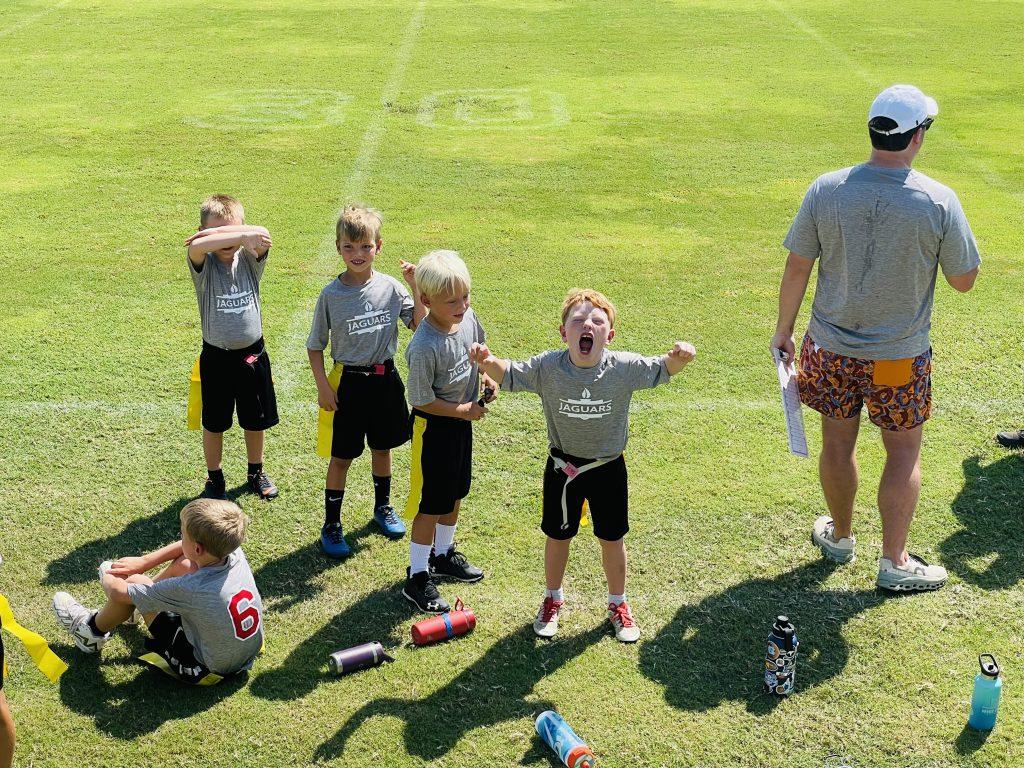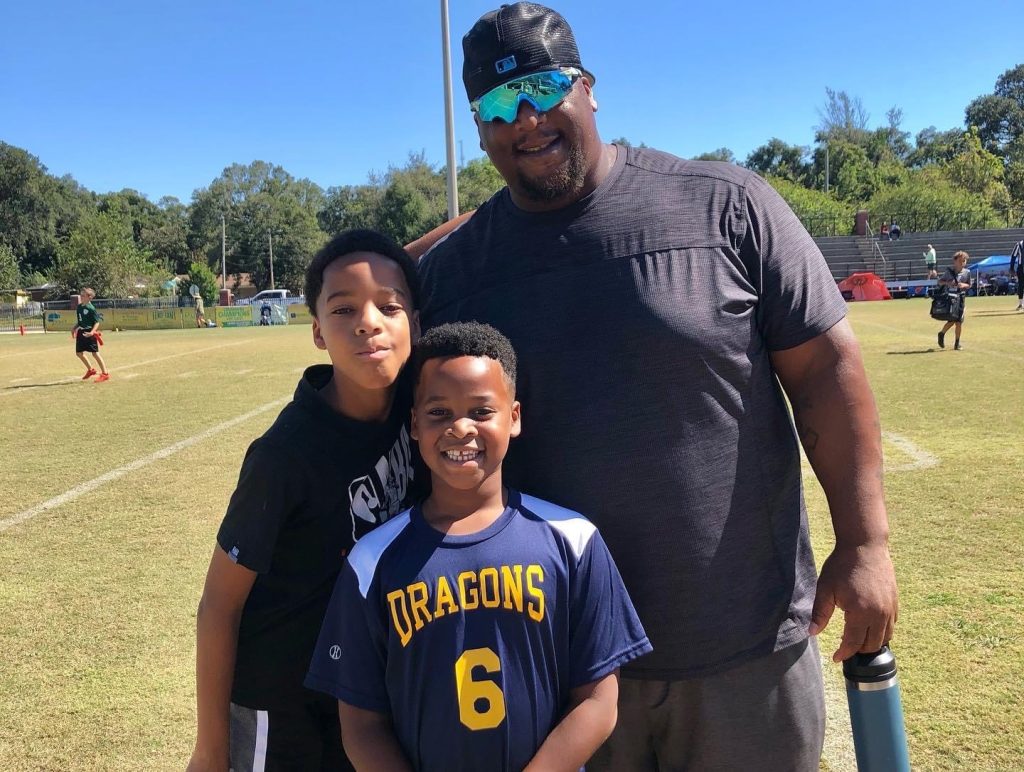 Getting your young child into sports, specifically football can provide life skills and lessons they will never be able to learn off the field.
Getting your young child into sports, specifically football can provide life skills and lessons they will never be able to learn off the field.
These are not lessons taught in the classroom nor at home; these are lessons forged in sweat, engrained through persistence, and actualized in their ability to fight for their team to win.
Football has long been a staple of American sports culture and a catalyst for essential skills like communication, cooperation, and selflessness. It’s strengthened through an evolution of development and diversity. The game looks completely different today than it did a decade ago.
With dedicated individuals working to enhance the game’s equipment and rules to give players the best opportunity to succeed, the future of football is brighter than ever.
“It’s a good learning opportunity because it teaches me how to pursue a goal and work hard. It teaches me to never give up. Having teammates is cool because they’re there to help you get better. It’s like iron sharpens iron.” (Brady – age 12)
Football is a team sport that emphasizes collaboration, cooperation, and communication. Young kids learn to work together on and off the field to achieve common goals. They discover the importance of passing the ball, supporting teammates, and relying on each other. These lessons in teamwork extend beyond the football field and can be applied to various aspects of their lives, including school projects, friendships, and future careers.
Through youth football, children learn the discipline and responsibility that comes with playing the sport.
Players must attend practices and games on time, follow instructions from coaches, and maintain their gear. This fosters a sense of responsibility and commitment, which can serve them well as they grow older. Balancing their responsibilities on and off the field helps kids develop time management skills and a strong work ethic.
“Having friends on my team makes playing football even more fun.” (Rylan – age 13)
Children gain an extended level of social development while playing sports. Football teaches kids the value of setting and pursuing goals. These young players learn that success often requires hard work, dedication, and perseverance. This mindset can translate into academic achievements and personal growth, motivating them to tackle challenges and strive for excellence in various aspects of life.
“My favorite thing (about football) is being included.” (Kohlton – age 14)
 They interact with peers from diverse backgrounds, fostering tolerance, empathy, and social skills. The shared passion for the game can create lasting bonds and lifelong friendships. Additionally, being part of a team boosts self-esteem and confidence as players experience the joy of contributing to their team’s success.
They interact with peers from diverse backgrounds, fostering tolerance, empathy, and social skills. The shared passion for the game can create lasting bonds and lifelong friendships. Additionally, being part of a team boosts self-esteem and confidence as players experience the joy of contributing to their team’s success.
“Even with the insane gap in skill and strength, I am never made to feel unwelcome or unworthy of being on the team.” (Lukas – age 16)
Football not only teaches teamwork and builds social development for young children; there can be a deeper component to the support a young child can receive while playing sports to develop their mental well-being.

“Playing football creates this mindset of understanding and working through the process to attain a goal.” – Hubert Payne, Coach.
This is the lesson that Hubert Payne’s son has learned playing football for the last five years with his father as his coach. Hubert Payne has trained NFL athletes for years through the 3X Performance and Physical Therapy program in Nashville, TN. He works with players on the mental game of football to ensure their success at the professional level. Hubert believes kids enjoy learning something new, not too focused on the end goal, but on getting to that point.
Hubert Payne has been focused on bringing his knowledge to youth football in South Florida. His goal is to provide performance coaching to youth sports to increase players’ mental health both on and off the field.
Setting aside the basics that playing football can help reduce stress and anxiety by giving children a healthy outlet for emotional expression it can go deeper. It can change a child’s mindset on how they can succeed in life.
Through failures and successes on the field, individually and as a team, these kids can create the emotional resiliency necessary to be mentally healthy in life.
“‘I know I can struggle and can’t see the end, but there can still be promise. I know if I keep stepping, I can overcome and have success.’ This is the most valuable lesson taught in football.” – Hubert Payne, Coach.
Youth football offers a multitude of benefits that extend far beyond the field. It promotes physical fitness, teamwork, discipline, and social development while fostering valuable mental health skills.
Football, for young kids, is more than just a game; it’s a journey that shapes their character and prepares them for the challenges and opportunities that lie ahead.
“What I like most about playing football are the snacks at the end!” (Charlie – age 6)

Football fosters physical fitness and nurtures social development, teaching children the importance of setting and pursuing goals. Moreover, it plays a crucial role in enhancing their mental well-being, teaching them to embrace challenges, cultivate emotional resiliency, and view success as a journey rather than a destination.
As parents, we have the opportunity to offer our children more than just a game; we provide them with a transformative experience that prepares them for the challenges and opportunities life presents.
So, let’s encourage our kids to embrace football, not just for the love of the sport, but for the lasting lessons and experiences it offers—a journey that begins on the field but continues throughout their lives.

To learn more about the game and to find a league in our area, head over to Future For Football.














